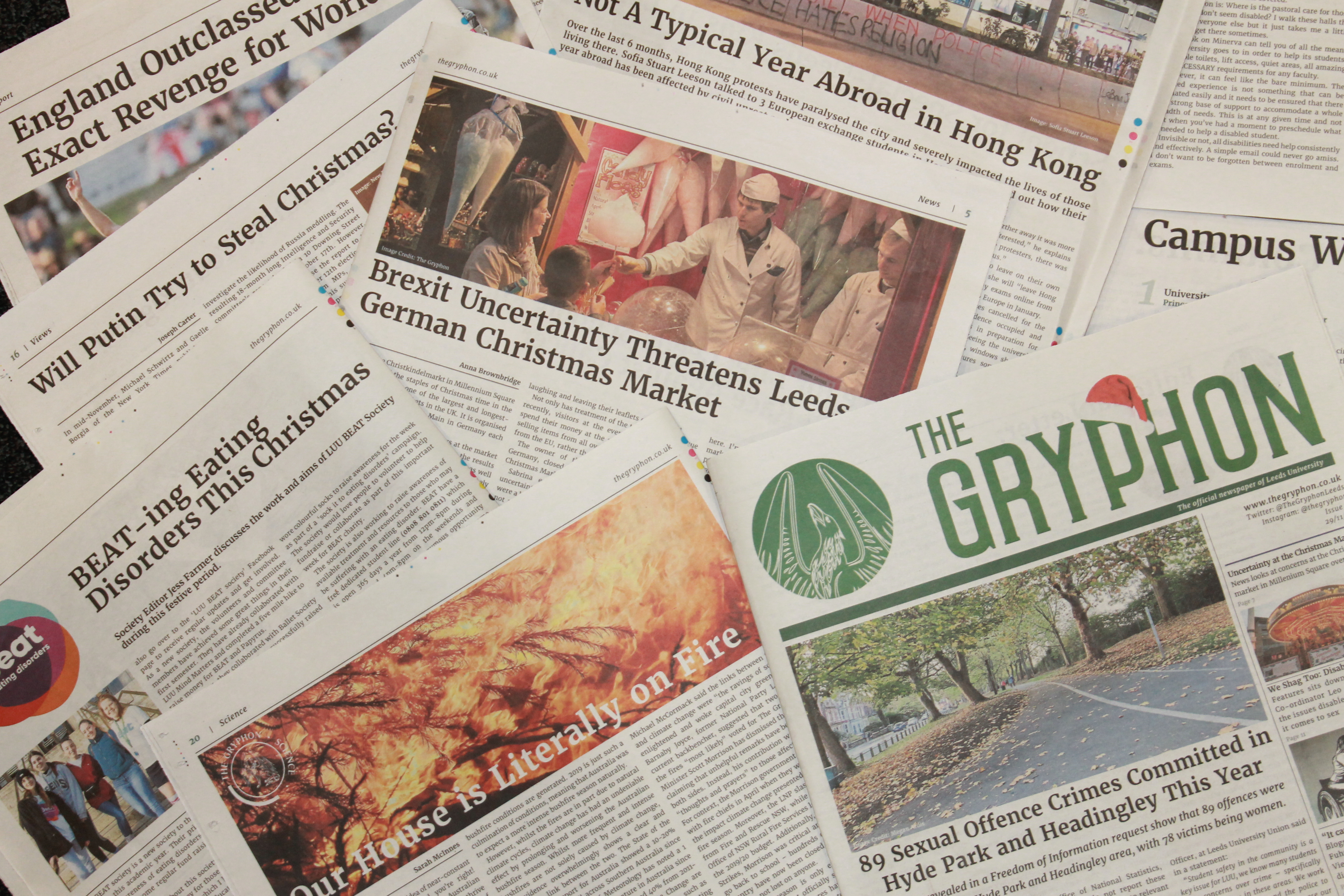Hey readers,
So we are now reaching the end of Semester One and the end of the 2010s.
What a wild ride the last ten years have been. Way back in 2010, I was still in Year 7. I had my Fame Monster and Whitney Houston CDs. David Cameron was a fresh face in Downing Street and most of us hadn’t heard of Adele. Moving forward, the world didn’t end in 2012, much to the disappointment of everyone. Gay marriage got legalized in England, Scotland and Wales. Taylor Swift and Kanye West’s feud reached new heights. We voted to leave the EU. Elon Musk became a meme. Donald Trump got elected. We entered the era of fake news.
I’m already halfway through this year and six issues down so I guess it’s time to reflect on what’s happened this year so far. One little pearl of wisdom I’ve certainly learned is that campus politics is really no different from national politics. It’s easy to think nothing happens but as soon as you scratch beneath the surface, the same things happen but just on a smaller scale.
Unlike the US where the Washington Post and the New York Times have entire departments focused on investigative journalism, the press in this country has failed to hold those in power to account in recent years. Mostly because most of them are owned by billionaires with ulterior motives. This means though without a constant critique of those with power, what’s to stop them from throwing certain people under the bus?
In the era of fake news and questions over what is true and what is not, it is vital that journalists, however small, continue to pursue the truth – no matter what cost or pushback. Complex issues are often boiled to sound bites in the world of 24-hour news but it’s important that press at all levels are constantly critiquing those in positions of influence and power. If we don’t, then a democracy fails to be a democracy.
With that in mind, where does that leave the role of an independent student newspaper? Last year, I was elected on a platform to make sure the paper holds the University, the Union and the Council to account.
So far this year, we talked to multiple employees at LUU’s Co-Op about a recent restriction on drinking water while on shift. We published statistics that revealed the extent of the BAME Awarding gap at the University of Leeds, including that White students are awarded first-class degrees at four times the rate of Black students. We revealed large quantities of plastic waste are produced by the club night Fruity every week, raising questions about the Union’s pledge to go single-use plastic-free in just four years. This week,
we have revealed worrying statistics about sexual offenses in Hyde Park and Headingley.
The reaction I’ve had to these stories has been interesting to say the least. People love to say they support the independence of a free press but they’ll not always be appreciative if they’re the ones being critiqued. They might even suggest that an entire story you publish was fabricated.
People love soundbites too and will leave out information that doesn’t fit with that. We’ve seen this happen even on campus with the recent UCU strikes have illustrated this perfectly. The issue is complicated but it has been boiled down into a simple us-and-them narrative.
Accessibility issues caused by UCU’s instruction to members to stop recording lectures have been completely swept under the rug. There is little acknowledgment that any deal struck between UUK (the organization that represents the University of Leeds and over 130 other Universities) and UCU will still need to be approved by the Pensions Regulator – a government body who will not approve any deal that poses the slightest risk of the pension fund collapsing.
There is also little acknowledgment there are other forms of strike action UCU can take that would have less of an impact on students. However, these aren’t as effective as striking on teaching.
Additionally, despite UCU’s insistence that UUK has ignored the Joint-Expert Panel that was established at the end of the last bout of striking, UUK has not. The report is extensive and presents a variety of options for UUK and UCU to agree on. It didn’t come to a single conclusion.
There is also little mention on campus of the offer made by UUK to UCU for an employee contribution of 9.1% towards the Pension Fund that was rejected before being put to members. I can support strikes but I can’t support the misinformation and the misrepresentation of the truth on campus.
Not letting universities off either, they need to address serious issues surrounding the race and gender pay gaps as well as the increased use of zero-hour contracts. Reporting we did last year showed Black employees’ average salary was £13,500 less than White employees illustrating significant inequalities at the University of Leeds.
The lines between who is in the wrong and who is in the right are always more blurred than they might initially seem. It’s easy to see one side as the villain and one as the hero.
This is why we need to ensure that we in the press are constantly looking beneath the surface because how else will we know what decisions those above us are making. As for the public, we need to constantly play the devil’s advocate instead of immediately jumping to the first conclusion. It’s nice to believe in a story that confirms what we believe but sooner or later we’ll have to face up to the harsh truth.
Ed Barnes, Editor-In-Chief, editor@thegryphon.co.uk

